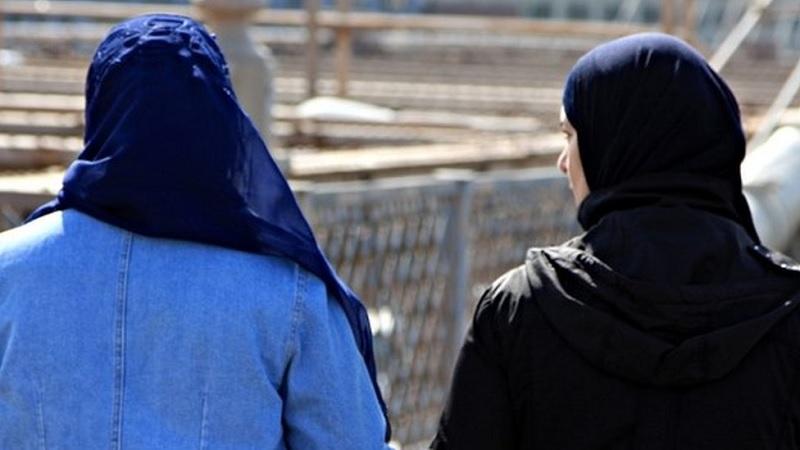Being Muslim in the Workplace: A Report by Parcham Collective

Image Courtesy:bbc.com
Even in metropolitan cities like Mumbai and Delhi, Muslims continue to face prejudice in the formal sector, said Mumbai’s feminist collective Parcham in their latest report ‘Being a Muslim at the Workplace.’
Parcham members worked in collaboration with the Advanced Centre for Women’s Studies, Tata Institute of Social Sciences (TISS) and decided to focus on Mumbai – the financial capital – and Delhi – the city of policymakers. The study interviewed Muslim youth in these two cities that offered opportunities for employment and survival for residents and migrants.
The report showed the subtle manners in which the community faced discrimination right from the time of applying for jobs. Even in companies with over a 100 employees, respondents said they were often the first and only Muslim employees.
Applicants who reach the interview stage encounter discrimination on account of their dress or their beard. One respondent said that her hijab came in the way of being recruited in two places that asked her to take off the garb while working.
“In both of these places, she was interviewed by Muslims who did not want a hijabi person because she assumes they probably did not want to seem regressive in hiring her,” said the report.
Another youth said that the final choice between two meritorious candidates might be based on community preference but is difficult to call out at the time. At the beginning of the report, interviewers mentioned respondents’ reluctance to document their experiences for fear of reprisal and implications on their future career.
“The reluctance to speak out is in itself very telling of the perceived citizenship status and the fear of Muslims in India,” Parcham members in the report.
Despite working as unpaid interns and engineering graduates receiving starting salaries between Rs. 6,000 to 12,000 per month, respondents did not report discrimination at the workplace. However, everyone agreed that as a Muslim, one had to be extra careful about one’s image, work harder and challenge the stereotype. One of the respondents in upper management says that if there is a narrative of bias against Muslims, this makes it doubly necessary for Muslims to work harder.
Examples of this are sprinkled throughout the report with one respondent, sporting a French beard and a kurta pyjama with a skull cap, wondered about his attire before being reassured by his boss. A global conglomerate did not have designated holidays for Eid although all Hindu festivals and even Good Friday were holidays. Respondents saw this as “some form of Islamophobia.”
Gender as an added layer of discrimination
Throughout the report, women respondents spoke of layered difficulties in working. They faced discrimination within homes and at the workplace. One of them had an uphill task convincing her family to allow her to study civil engineering, a field not considered suitable for women.
Even so she was asked to "take a break" from the job upon marriage because her employer thought she would not be able to handle both marriage and household. The person found a new job but expressed the belief that the discrimination was on account of gender, not religion.
Similarly, another woman working at a BPO was denied promotion twice though she was the most experienced person and was entrusted with responsibility beyond her job profile by her bosses. She had to negotiate with the threat of leaving the job to get a promotion that too without an increment. She was verbally harassed by younger members in her team and quit the job after her third complaint went ignored. The person who instigated the harassment was made the team leader after she left.
A third respondent spoke of a colleague who quit her job because her boss wanted her to party with him.
Workplace environment
Respondents were much more vocal about instances of discrimination in a social environment. For example, during elections, one respondent spoke of feeling physically sick by the discussions at her workplace and took a day off on the day of counting. Another said that his colleagues told him he would be unhappy if the BJP won. Yet another mentioned a conversation at work on divisive politics prevalent in India where a person said, “We are alright with all communities except (silence)”. She confronted the person to accept that they meant Muslims, but also tried to have a conversation with them drawing on her own relationship with that person.
“This is the only way forward, rather than debating. People can have a great relationship with individual Muslims but will still hate the community,” said the respondent.
In 2020, following reports of the Tablighi Jamaat linkage with Covid-19, one person said they received a WhatsApp forward on the office group blaming Muslims for the spread of the virus. He asked, “If people ask me about the Tablighi Jamaat, I say that I am not their spokesperson. Why should I be asked?”
Statements like ‘You Don’t Look Like a Muslim’, ‘You don’t behave like a Muslim’ were made to respondents as compliments because they do not “fit into the stereotype of the Muslim.” However, during India-Pakistan cricket matches, it was assumed that the Muslim employee will root for Pakistan. One person was even asked if they felt sorry that Ajmal Kasab received the death penalty.
Despite all this, one respondent said Muslims must also make an effort not to exacerbate situations. Accordingly, some respondents said they were careful not to bring non vegetarian food for lunch so as not to hurt others' sensibilities.
Others were cautious not to encourage stereotypes, One person narrated an incident where a Muslim colleague disappeared with the office laptop, sparking off a heavy enquiry about who the person is and what locality they belong to. When this happens, the next Muslim has to work 10 times harder to change that stereotype.
Employers also conduct background checks to see if a person was part of a protest or was arrested for some reason. That will be a bad record and will make them ineligible for hire. One woman, who has been active in the anti-CAA campaign, said her participation was questioned by employers.
Advice by the community, for the community
The youth interviewed for the study recommended that the community should “open up” and “get out of our bubble”. They expressed a need for Muslims to begin to look outwards, to recognise that a world exists outside of ghettos like Mumbra.
Some spoke of the need to get out of the victim mentality among Muslims which kept them from seeking higher education and jobs. They believe the need for Muslims to prove themselves by working harder than the rest.
“If the majority community has stereotyped Muslims, Muslims too are unwilling to assimilate and accept different cultures,” said one respondent.
Many participants said they have sung hymns in convent schools or joined Diwali pooja which did not make them “a lesser Muslim.”
The report on its part also reiterated the need to implement the recommendations of the Sachar committee. It called for a review of the proposed guidelines of the Equal Opportunities Commission, especially its redressal mechanism that includes class action suits. Such measures make it harder for community members to be hired. It also called for implementation of the Diversity Index, promotion of Affirmative Action policies by corporates, setting up of a Muslim Chamber of Commerce and intervention at schools to curb discrimination at a young age.
Courtesy: Sabrang India
Get the latest reports & analysis with people's perspective on Protests, movements & deep analytical videos, discussions of the current affairs in your Telegram app. Subscribe to NewsClick's Telegram channel & get Real-Time updates on stories, as they get published on our website.
























